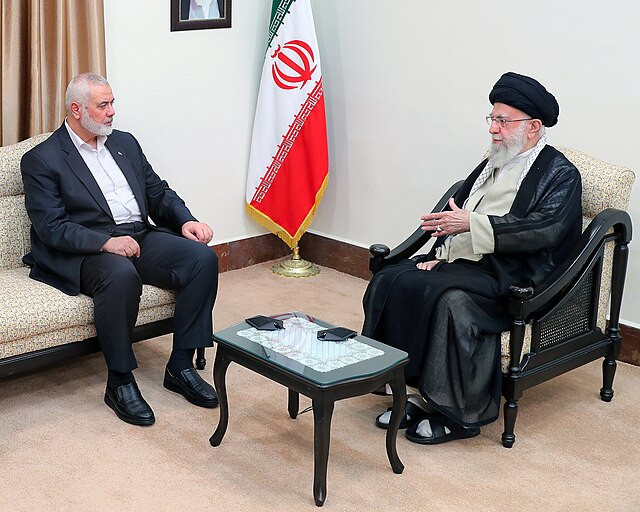The Biden administration is bracing for an imminent Iranian attack on Israel, anticipating a response to the assassination of Hamas political leader Ismail Haniyeh in Tehran earlier this week. According to three U.S. officials who spoke to Axios, preparations are underway to counteract what is expected to be a significant and coordinated retaliation by Iran, potentially involving Lebanese Hezbollah.
The urgency stems from statements made by Iranian Supreme Leader Ayatollah Ali Khamenei and senior Iranian officials, all of whom have vowed revenge for Haniyeh's assassination. Hassan Nasrallah, the leader of Hezbollah, also promised a substantial response to the Israeli airstrike in Beirut that resulted in the death of his top military adviser, Fuad Shukr.
The Biden administration is particularly concerned about the difficulty of rallying the same international and regional coalition that previously defended Israel from an Iranian attack. This coalition had been crucial during the April 13 assault on Israel, which was itself a retaliation for an Israeli airstrike in Damascus that killed a top Iranian general.
The U.S. intelligence community began receiving clear indications on Wednesday that Iran was preparing to retaliate. Two officials noted that Iran and its proxies might need a few days to coordinate and prepare the attack on Israel. The Pentagon and U.S. Central Command are taking precautions similar to those made ahead of the April attack, involving military assets in the Gulf, the Eastern Mediterranean, and the Red Sea.
"We expect a few rough days," a U.S. official remarked. A senior Israeli official added that the Israeli intelligence community is preparing for a wide-ranging missile attack by Iran. The Israel Defense Forces (IDF) spokesperson, Rear Admiral Daniel Hagari, confirmed that international partners have bolstered their forces in the region to help counter any possible attack.
White House national security adviser Jake Sullivan stated in a briefing that the risk of a broader war in the Middle East remains a concern. The Biden administration is making intensive efforts to deter escalation and deescalate the situation through diplomacy.
At the funeral of Fuad Shukr, Nasrallah emphasized that Hezbollah and other pro-Iranian groups, including Shia militias in Iraq and the Houthis in Yemen, are prepared to respond. "We are not talking about separate fronts anymore. This is an open campaign on all fronts and there is no doubt [the war] has entered a new phase," he said.
Several U.S. and international airlines, including United, Delta, Lufthansa, and Swiss, have suspended flights to and from Israel due to the heightened threat. The Israeli military is on high alert, with Prime Minister Benjamin Netanyahu holding a meeting to assess the IDF Home Front Command's preparations. "We are prepared for what may come. Israel is in a state of very high readiness for any scenario-on both defense and offense. We will exact a very high price for any act of aggression against us from any quarter whatsoever," Netanyahu declared.
The situation remains volatile as Iran faces limited but significant options for retaliation. The regime's response will be crucial in determining its role as a regional power. Previous high-profile assassinations, such as those of nuclear scientist Mohsen Fakhrizadeh and Quds commander Qasem Soleimani, led to fiery rhetoric but relatively restrained military responses. Whether Iran will follow a similar pattern or escalate further remains to be seen.
Iran's leadership, including Supreme Leader Khamenei, is under intense domestic and international pressure, complicating the decision-making process. Khamenei's initial statement on the matter was stern: "You killed our dear guest in our house and now have paved the way for your harsh punishment."




